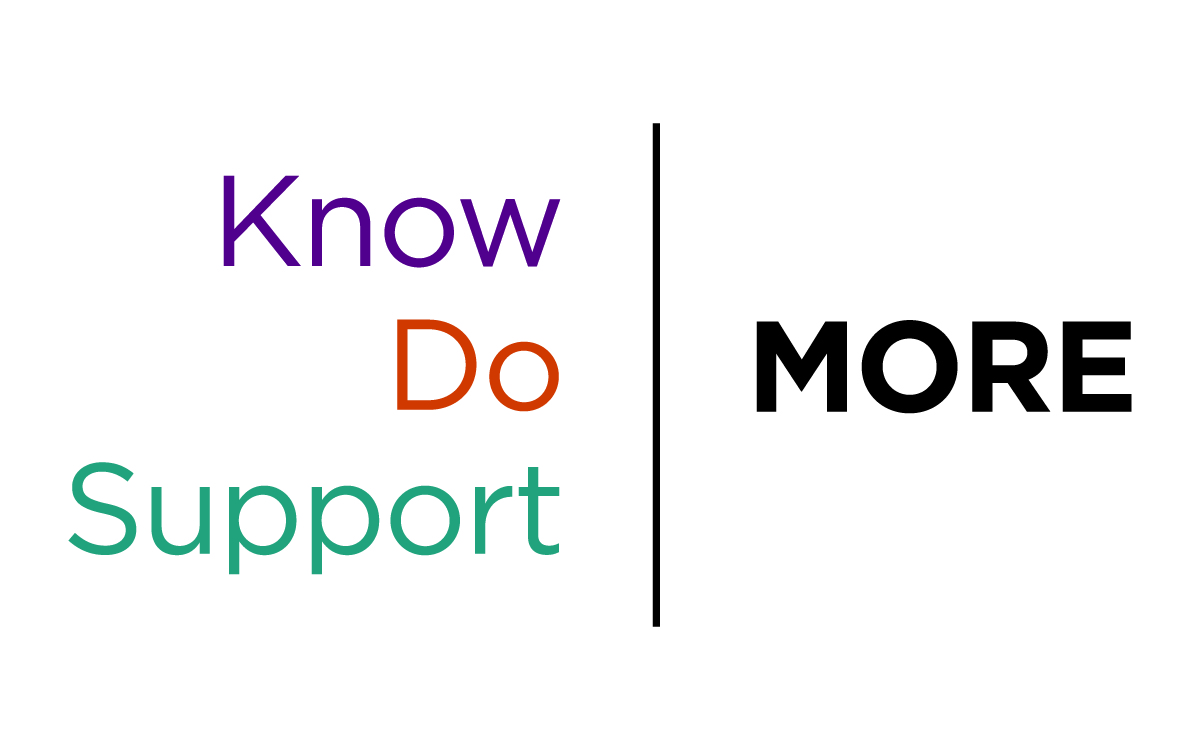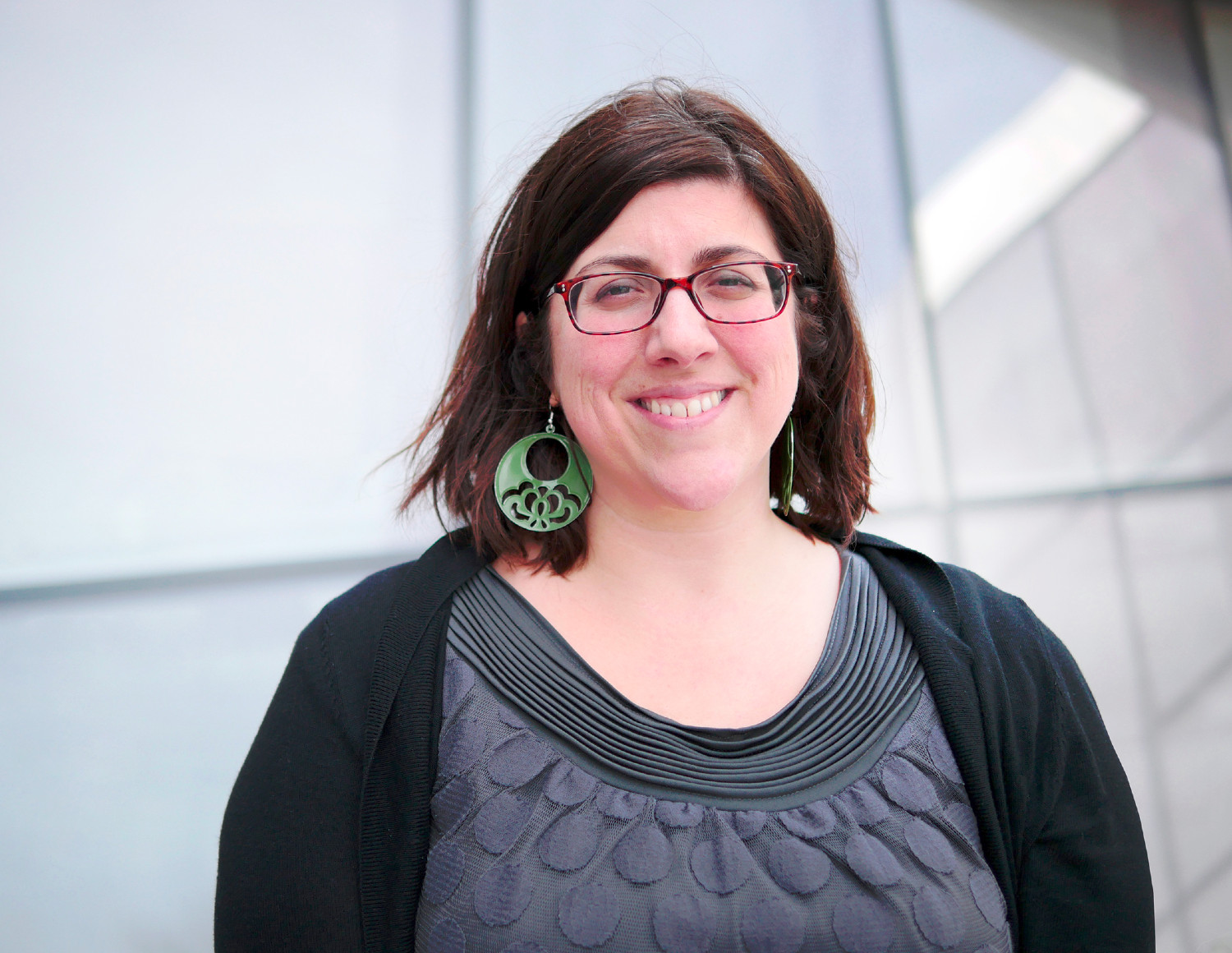NOTE: This story refers to situations that may trigger traumatic memories for members of our community. Resources and assistance are available through multiple campus programs.
Katie Gregory is an assistant professor in the Department of Psychology at Michigan State University. She is also the co-lead of the Culture of Support initiative, one of the action items in the Relationship Violence and Sexual Misconduct Strategic Plan.
Know More
I had a close friend who was raped when they were an undergraduate student at MSU. We met months after the assault — but I watched how it transformed their life in ways that were unbelievably unfair. I remember how our friend group desperately tried to find help for them but didn’t really know where to start or who to talk to. I remember our friend telling us about walking to a support group on campus and running into the sexual assault perpetrator. It set them back in their process of healing for months. Ultimately, this friend left the university and returned home feeling unsupported and not knowing where else to go for help.This was over 20 years ago, and MSU is a very different place today. Our community had a watershed moment when hundreds of survivors came forward to hold Larry Nassar, his colleagues and MSU accountable. But this isn’t just about that situation. We see my friend’s story, and countless similar stories, repeated at colleges and universities across the country. We see varied levels of accountability for perpetrators, their abettors and institutions. Some days culture change feels unfathomable and unsurmountable.
But every day I see a community of colleagues — students, faculty and staff — here at MSU who are committed to making a sustainable and lasting change at our university for survivors of relationship violence, sexual assault, stalking and sexual harassment. They remind me that the culture change is both possible and within our reach.
Do More
After I transferred to MSU as a student from Cottey College in Missouri, I found a part-time job on a research project with survivors of domestic violence and their children. This experience transformed my life trajectory. What I quickly learned is that there was a way to do research that fit directly with my values of honoring survivors’ stories, remaining trauma-informed, working directly with community organizations as true partners and leveraging the research to help impact program development and policies on how to best serve survivors.After receiving my bachelor’s, master’s and doctoral degrees at MSU, I was hired as a fixed-term faculty member to continue my work in gender-based violence research. Around the same time, Nassar’s crimes and MSU’s actions became national news. We learned we had a prolific sexual predator in our community and the university’s response was, to say the least, disappointing. Doing gender-based violence work at MSU during this time was devastating. It was hard to be a Spartan.
Like many, I considered walking away from MSU. But I didn’t.
Due to the dedication of the Relationship Violence and Sexual Misconduct Expert Advisory Workgroup, under the direction of Professor of Psychology Rebecca Campbell and Deputy Chief Andrea Munford, I watched as MSU leaders took steps to help improve access and availability of support services for survivors of relationship violence, sexual assault, stalking and sexual harassment. A big step was the creation of the RVSM Strategic Plan. Now I am part of the team implementing those actions. Now I am working toward and pushing for change.
Support More
Each one of us has the potential to be a first responder when it comes to relationship violence, sexual assault, stalking and sexual harassment. And our responses to a survivor’s disclosure of having experienced abuse can greatly impact their healing trajectory. Research has shown that by simply saying, “I believe you. I am so sorry this has happened. Do you want me to help you find some people who might be able to help you?” can be exactly what a survivor needs to hear after telling someone what happened to them.
As the co-director of the Culture of Support initiative, I am helping lead a team of faculty, students and staff who are passionate about creating a culture in which everyone feels safe and supported. We are partnering with the survivor-serving programs here at MSU to amplify how each member of our community can get services and provide support to survivors. We are working to educate all faculty, staff and students about how to be trauma-informed. And we are just getting started.
 I look back to that time as an undergraduate student and am struck by how hard we worked to support our friend after their assault and how difficult it was to find the appropriate survivor-centered help they desperately needed. I wish things could have been different for them.
I look back to that time as an undergraduate student and am struck by how hard we worked to support our friend after their assault and how difficult it was to find the appropriate survivor-centered help they desperately needed. I wish things could have been different for them.
That time with my friend and countless other experiences fuel the work I do in tandem with amazing colleagues, students, mentors and staff here at MSU. It will take all of us, collaboratively, to try to shift the culture around relationship violence, sexual assault, stalking and sexual harassment.
To learn more about the programs serving survivors at MSU and to learn how to support survivors in your life, please visit supportmore.msu.edu.
